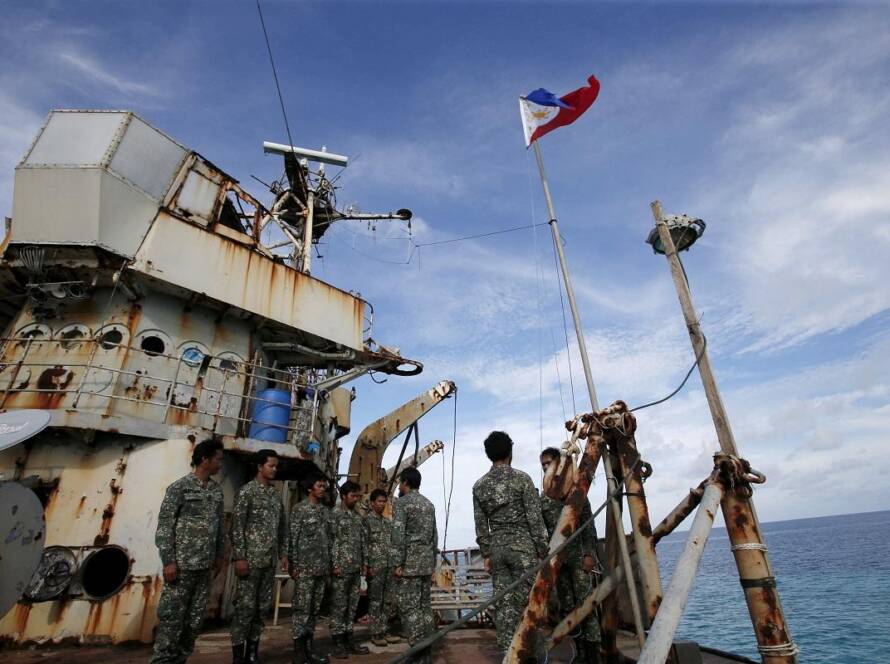By Rear Admiral Y. N. Jayarathna (Retd)
When Hamas attacked Israel on October 7, 2023, the world’s sympathy was with the Israeli people. It was clearly an act of terrorism, and was duly condemned as such.
By November, the world began reacting differently, as Israel’s counterattack became visibly indiscriminate. Despite Palestinian politicians failing to make use of the support and aid offered by the Arab world to develop their country, thereby making room for Hamas to consolidate their position and undermine the legitimacy of their cause, the suffering of the people was too much for the world to ignore.
Then the Houthis started responding from Yemen, at first targeting ships linked to Israel and gradually expanding to the Western bloc. To add to the crisis, we then witnessed a possible resurgence of Somalian piracy.
Will all this stop at the Bab El Mandeb? Hardly. Subsequent developments have involved Iran exchanging fire with Pakistan, Iraq, and Syria, and the US led coalition striking at will on targets wherever they are, irrespective of borders and sovereignty. What started as an assault by a non-state actor has by now become a regional military issue and a global issue as the world’s economy is affected. Even undersea cables seem under threat.
The key deciding factor is the US’s connections with Israel. Had the US exercised restrained and due control over Israel in handling and managing the post-October 7 scenario, this conflict could have been better managed. Rather than backing the Jewish State by veto power and feel-good statements of solidarity, had the US pushed Israel to exercise restraint in Gaza, there wouldn’t have been instability on the scale we are seeing now.
In other words, the failure of the US to act with the interests of the world and world order in mind has dragged us to this state of turmoil.
Any conflict in today’s context will be a “global conflict”, as States will be taking one side or another. The US was so focus on protecting and standing by with their ally at the cost of the shifting global attitudes. Any conflict today needs to be managed and controlled carefully from their inception. With its economic and military might, the US may be able to sustain these long-drawn conflicts, but not on multiple fronts.
In their book Conflict, General David Petraeus and Andrew Roberts contend that superiority does not always ensure dominance, and American involvement in contemporary conflicts stand to prove that military power has not ensured US dominance. Rather, the US has always secured dominance through non-military action.
Then there is the UK. They have been noticeably hesitant with regard to the Red Sea issue. Once a global power and a colonial powerhouse, the British military has today turned into a subject of mockery on social media and other platforms.
By contrast, India is playing a key role at the entry point of the Indian Ocean. Operating independently of the US led coalition but making the best use of its alliances with the US, India clearly a winner in its handling of the Middle East crisis.
Yet is all well with India? As per certain reports surfacing in various corners it appears that the Indian neighbourhood is sliding towards more chaos. Myanmar has become a key issue, while the Gaza crisis has stoked fears of Islamic extremism.
Recent political developments in the Indian Ocean itself complicate this picture further, with media induced rivalries between Maldives and India. These distractions impact coexistence in the region, adding to much turbulence. Things are no better along the East Coast of Africa, with extremist groups exploiting the developments in Gaza to their advantage.
Sri Lanka is another case. The President’s decision to deploy a navy vessel to the Red Sea has unleashed a negative backlash. Making matters worse, the government has given the impression of being disconnected from ground realities.
All this, of course, is taking place in an election year. While domestic issues are going to play a major role, these conflicts will prove to be a headache for any politician or incumbent leader. Whilst the Ukrainian has always been seen as someone else’s war, the disturbances brought in by the disruptions in the sea lane of communication along the Red Sea and Indian Ocean has become everyone’s war, and everyone’s business.
Had the US exercised good judgement, these conflicts would have remained within Israeli territory. Had the veto powers used their vote wisely, we would not have seen an escalation of the conflict into our doorstep. Had the UN invoked Article 99 and the Secretary-General happened to have been the empowered international figurehead we assumed him to be, the UN would not have become a mere boardroom.
Unfortunately for the world and for us, this was not to be.
Rear Admiral Y. N. Jayarathna (Retd) was the Chief of Staff and Chief Hydrographer of the Sri Lanka Navy and Joint Chief Hydrographer to the Sri Lankan government. On retirement his services have been secured by the United Nations as an International Consultant for Undersea Cables. He can be reached at ynjayarathna@hotmail.com.
Factum is an Asia Pacific-focused think tank on International Relations, Tech Cooperation, and Strategic Communications accessible via www.factum.lk.
The views expressed here are the author’s own and do not necessarily reflect the organization’s.


